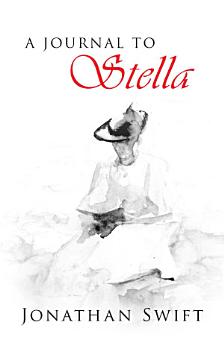A Journal to Stella
Jonathan Swift
ছেপ্তে ২০১৭ · Courier Dover Publications
ইবুক
640
পৃষ্ঠা
reportমূল্যাংকন আৰু পৰ্যালোচনা সত্যাপন কৰা হোৱা নাই অধিক জানক
এই ইবুকখনৰ বিষয়ে
Best remembered as the author of Gulliver's Travels, Jonathan Swift was a Dublin native whose political pamphleteering led to a London-based position as editor of a conservative periodical. This journal, written between 1710–1713, consists of 65 letters to his friend and protégée, Esther "Stella" Johnson, and her companion, Rebecca Dingley. The letters sparkle with the satirist's renowned wit and offer an intimate account of the personalities, politics, and drama of Queen Anne's court.
Swift was Stella's tutor when she was a child, and the pair formed a lifelong attachment. In contrast to the grand epistles Swift exchanged with Alexander Pope and John Gay, the letters to Stella were written with no thought of their eventual publication. Full of court gossip, bawdy jokes, and baby talk, they reveal the author's opinions, hopes, and disappointments with the immediacy and energy of real conversation. Swift offers tart assessments of the Duke of Marlborough ("covetous as Hell, and ambitious as the prince of it"), the Duke of Newcastle's daughter ("handsome, and has good sense, but red hair"), and other prominent figures of the era, including writers Joseph Addison, Richard Steele, and William Congreve. Details of his everyday activities — scrounging for dinner invitations, quarrels with his manservant, laments over the price of periwigs, coal, sedan-chairs, and other essentials — offer insights into eighteenth-century London life. Just as Swift's literary works reveal his wit and genius, his lively and affectionate letters provide glimpses of his very soul.
Swift was Stella's tutor when she was a child, and the pair formed a lifelong attachment. In contrast to the grand epistles Swift exchanged with Alexander Pope and John Gay, the letters to Stella were written with no thought of their eventual publication. Full of court gossip, bawdy jokes, and baby talk, they reveal the author's opinions, hopes, and disappointments with the immediacy and energy of real conversation. Swift offers tart assessments of the Duke of Marlborough ("covetous as Hell, and ambitious as the prince of it"), the Duke of Newcastle's daughter ("handsome, and has good sense, but red hair"), and other prominent figures of the era, including writers Joseph Addison, Richard Steele, and William Congreve. Details of his everyday activities — scrounging for dinner invitations, quarrels with his manservant, laments over the price of periwigs, coal, sedan-chairs, and other essentials — offer insights into eighteenth-century London life. Just as Swift's literary works reveal his wit and genius, his lively and affectionate letters provide glimpses of his very soul.
লিখকৰ বিষয়ে
Born in Dublin, Jonathan Swift (1667–1745) studied at Trinity College and was eventually ordained as a priest. Most of his books were first published anonymously or under a pseudonym, including Gulliver's Travels, his most famous work.
এই ইবুকখনক মূল্যাংকন কৰক
আমাক আপোনাৰ মতামত জনাওক।
পঢ়াৰ নির্দেশাৱলী
স্মাৰ্টফ’ন আৰু টেবলেট
Android আৰু iPad/iPhoneৰ বাবে Google Play Books এপটো ইনষ্টল কৰক। ই স্বয়ংক্রিয়ভাৱে আপোনাৰ একাউণ্টৰ সৈতে ছিংক হয় আৰু আপুনি য'তে নাথাকক ত'তেই কোনো অডিঅ'বুক অনলাইন বা অফলাইনত শুনিবলৈ সুবিধা দিয়ে।
লেপটপ আৰু কম্পিউটাৰ
আপুনি কম্পিউটাৰৰ ৱেব ব্রাউজাৰ ব্যৱহাৰ কৰি Google Playত কিনা অডিঅ'বুকসমূহ শুনিব পাৰে।
ই-ৰীডাৰ আৰু অন্য ডিভাইচ
Kobo eReadersৰ দৰে ই-চিয়াঁহীৰ ডিভাইচসমূহত পঢ়িবলৈ, আপুনি এটা ফাইল ডাউনল’ড কৰি সেইটো আপোনাৰ ডিভাইচলৈ স্থানান্তৰণ কৰিব লাগিব। সমৰ্থিত ই-ৰিডাৰলৈ ফাইলটো কেনেকৈ স্থানান্তৰ কৰিব জানিবলৈ সহায় কেন্দ্ৰত থকা সবিশেষ নিৰ্দেশাৱলী চাওক।







